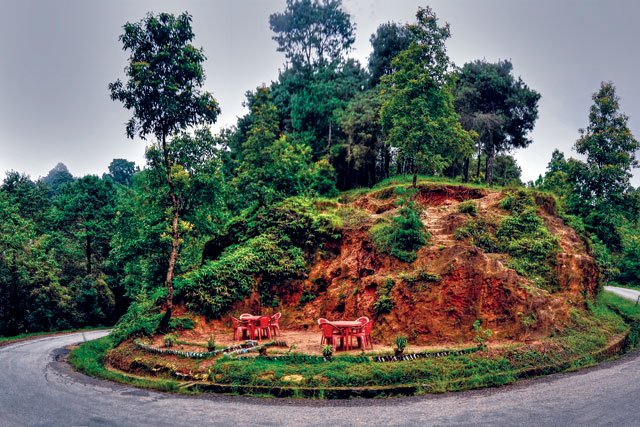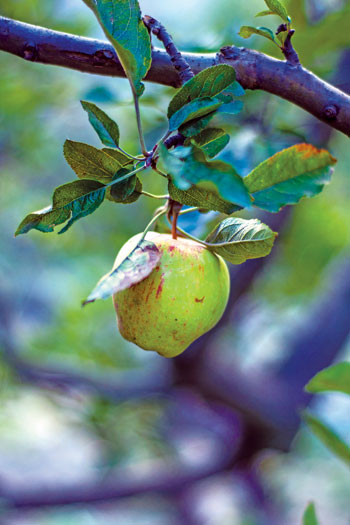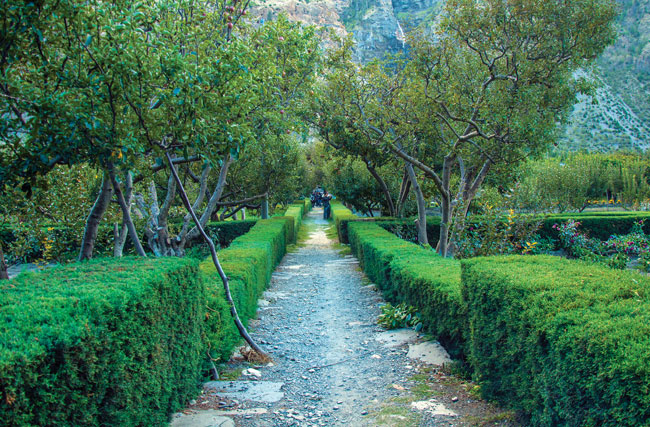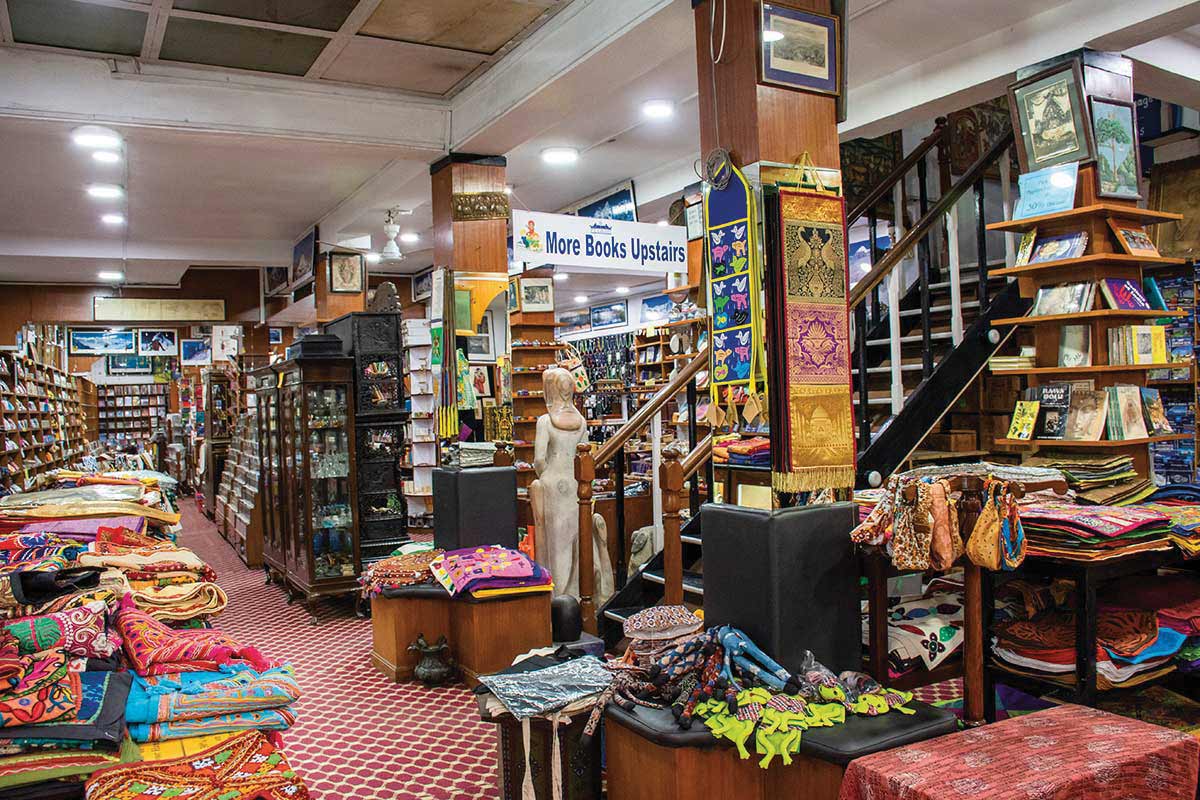A few practical suggestions and ideas towards a more environmentally conscious lifestyle in our city.

It’s no secret that these have been dusty days here in the city, with construction and pollution on the increase. And while there’s certainly some things we can’t do anything about, if we let the negatives become our focus, we neglect the things that we can do. Even little actions and changes we make can have a cumulative effect, and also, perhaps even more importantly, inspire others to consider the impact of their choices as well, which can have a wonderfully positive ripple effect.
Bring your own bags
Kathmandu has already passed laws banning the use of polyethylene bags, but they can still be found in many places. In July 2016, an article in a daily quoted the Nepal Plastic Manufacturers’ Association as saying that 4,700,000 to 4,800,000 individual plastic bags are used daily in Kathmandu alone.
I really hope the figure isn’t that high—and you might be tempted to think that nothing you can do in the face of that will make much of an impact, but change has to start somewhere. This comes down to making it a habit: stuff some reusable cloth bags under your scooter seat, inside your purse, or on the back seat of the car. If they’re there, you’ll use them, instead of resorting to a plastic bag. I try to collect them in various sizes and shapes so that I’ll have something to fit whatever need comes up. If cloth bags are for sale at events I attend, I often pick one up; I can support a cause I care about, and they’re often better quality, too.
Avoid plastic packaging where possible
This isn’t realistic all the time, I know, but I still try to avoid the plastic excess when a choice is available. For example, lots of supermarkets now pre-weigh, label, and package fruits and vegetables. It’s convenient, sure, but a better option is to shop at smaller stores and put your produce into a cloth bag. It’s supporting local business, as well, and I find the fruits and vegetables are often fresher.
Some places, like Farmer’s Mart in Jhamsikhel, for instance, sell varieties of rice and beans loose—small cloth drawstring bags are ideal for this purpose. And while you might get looked at a little strangely, you can also bring clean reusable bags to your local corner store when you need to buy a kilo of flour or sugar, then transfer them into a container at home. Which brings me to my next point:

Repurposing jars and containers
Your grandmother probably already does this—and you should, too. Those plastic containers available in all the shops look shiny and nice, sure, but a cleaned-out jam jar or powdered milk tin does the job just as well. One less thing in the trash, one less thing to purchase. Plastic may seem like a cheap and easy choice, and it’s everywhere now, but remember, it doesn’t decompose, cannot be recycled (some varieties can, but not in Nepal), and isn’t good for our health in the long run. Glass or metal containers are much more durable and multi-purpose; for example, I use glass jars for made-at-home “take away” cold coffee when I have to run out the door in a hurry.
Pass things on
Most of us have things in our house that sit unused in the corner gathering dust; we either end up throwing them away in the end, or ignore them ad infinitum until they become so old they are of no use to anybody.
There are several solutions to this. Is there a school near you that would love to have your used books and magazines for their library? You’d be surprised how many schools lack simple library facilities; having books easily available can make a real difference in helping kids gain a love for reading.
Another wonderful venture is HosteHainse, an organization that hosts a weekly garage sale/market selling gently used clothes, shoes, household items, and so on for a flat rate of Rs.100 each—and all the money made goes to run schools in Sarlahi District. If you want to donate things you no longer need, just give them a call at 01-5000100 and they will even come to pick them up. Think of it as cleaning house for a good cause.
Recycling
So there aren’t official facilities for recycling in Kathmandu (if I’m wrong, please let me know, I’d love to be incorrect in this) but of course we save our bottles and newspapers for the bicycle pushing men who come calling by our homes. For paper items, there is at least one place to take them: Jamarko, a company that uses waste paper and cardboard to make fresh new paper. I save all used office paper as well as packaging from food or toiletries, as long as they are not dirty, and once a month or so, I drive a couple of large sacks of it down to their factory in Galkopakha, near Thamel. It’s a small action, but it makes me happy to think that a little less trash is being made because of me, and that, instead, some beautiful handmade paper can be crafted out of it. Their number is: 01-4351050.
Shop local, renewable resources
When you need to buy things like new sheets, towels, or household items, if possible and affordable, try to choose natural fabrics like cotton or wool instead of synthetics. There are locally woven items that do the added service of providing local jobs. I love the cotton dishtowels and pot holders from Dhukuti. They last for years, and I only keep buying new ones because the shop keeps coming up with new attractive designs that I just have to have. Cotton Mill has lovely sheets and bed covers that I’ve bought as wedding gifts. Again,it’s a place that has really well-made local items.

Keep your vehicle well maintained
Unlike the person in traffic behind you, you may not be aware if your vehicle is spewing black exhaust into the air. But regular servicing—not just when you have a breakdown—can ensure that you are at least doing what you can to minimize the effect that your car or bike has on the environment. It would be nice if there were regulations to enforce this, but until that time comes, if you are going to be a private vehicle owner in a congested city like Kathmandu, then the least you can do is minimize any polluting effects.
Plant a tree, or two, or six
Do you have a bit of garden that’s being neglected at the moment? Planting a tree or two is a small but important thing you can do to keep down dust and put some much needed oxygen back into the city’s environment. I favor sprouting avocado seeds in a cup, and then planting them out when they get larger, but tree seedlings are available at any plant nursery; if you have no place to plant, large pots will always do the trick. And, don’t underestimate the power of a bit of green to brighten up not just air quality, but your mood as well!









